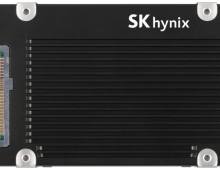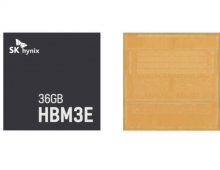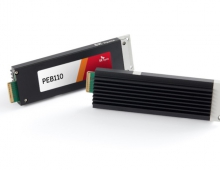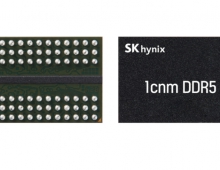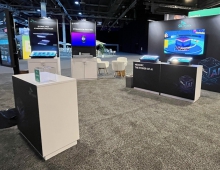
Judge Rules Rambus Destroyed Evidence in Hynix Case
Rambus destroyed records that could have been evidence in
its patent dispute with Hynix Semiconductor, a U.S. judge
ruled, but the court has not yet decided on a penalty for
Rambus.
SK hynix said it is pleased with US District Judge Ronald
M. Whyte's ruling. Although the precise remedy for
Rambus's conduct remains to be decided the ruling
"substantially limits any royalties on Rambus's patents,"
SK hynix said. The company added it would continue to
vigorously defend itself in the litigation.
Judge Ronald Whyte of the U.S. District Court for the Northern District of California said in his ruling that Rambus' patents should still be seen as valid.
Still, Rambus' destruction of evidence "should preclude it from entitlement to a royalty that places Hynix at a competitive disadvantage," Judge Whyte wrote in his ruling.
Both companies have been ordered to submit briefs to the court on what they believe would be a reasonable royalty rate for the patents.
The same judge had previously ordered Hynix to pay Rambus around $397 million for infringing on dynamic random-access memory (DRAM) patents.
"This is a positive result as it is consistent with what we've been seeking all along - reasonable compensation for the use of our patented inventions," said Thomas Lavelle, senior vice president and general counsel at Rambus. "We appreciate the Court's extensive efforts in working through years of complex arguments. While this decision does not provide SK Hynix with a going-forward license, we are hopeful it will lead to putting this matter behind us completely and allow us to reach reasonable agreements."
This case was originally filed by SK Hynix against Rambus in August 2000. The case was split into three separate phases with Rambus prevailing in all three phases. The first phase considered SK Hynix's allegations that certain Rambus patents should be unenforceable under the doctrine of unclean hands and spoliation.
The second phase addressed Rambus' allegations that SK Hynix memory products infringed its patents. The jury in this phase upheld the validity of Rambus' patents and found that SK Hynix memory products infringe all Rambus patent claims in this case. The jury awarded Rambus damages in the amount of $397 million.
In the third phase of the case, SK Hynix (together with Micron and Nanya) alleged Rambus engaged in antitrust and fraud during its participation in a standard-setting organization called JEDEC in the early 1990s. A jury in this case, again, found in favor of Rambus, finding it had acted properly during its participation in JEDEC.
SK Hynix's appeal of these decisions led to a Court of Appeals for the Federal Circuit 2011 ruling vacating the NDCA court's final judgment and remanded the matter for reconsideration.
Judge Ronald Whyte of the U.S. District Court for the Northern District of California said in his ruling that Rambus' patents should still be seen as valid.
Still, Rambus' destruction of evidence "should preclude it from entitlement to a royalty that places Hynix at a competitive disadvantage," Judge Whyte wrote in his ruling.
Both companies have been ordered to submit briefs to the court on what they believe would be a reasonable royalty rate for the patents.
The same judge had previously ordered Hynix to pay Rambus around $397 million for infringing on dynamic random-access memory (DRAM) patents.
"This is a positive result as it is consistent with what we've been seeking all along - reasonable compensation for the use of our patented inventions," said Thomas Lavelle, senior vice president and general counsel at Rambus. "We appreciate the Court's extensive efforts in working through years of complex arguments. While this decision does not provide SK Hynix with a going-forward license, we are hopeful it will lead to putting this matter behind us completely and allow us to reach reasonable agreements."
This case was originally filed by SK Hynix against Rambus in August 2000. The case was split into three separate phases with Rambus prevailing in all three phases. The first phase considered SK Hynix's allegations that certain Rambus patents should be unenforceable under the doctrine of unclean hands and spoliation.
The second phase addressed Rambus' allegations that SK Hynix memory products infringed its patents. The jury in this phase upheld the validity of Rambus' patents and found that SK Hynix memory products infringe all Rambus patent claims in this case. The jury awarded Rambus damages in the amount of $397 million.
In the third phase of the case, SK Hynix (together with Micron and Nanya) alleged Rambus engaged in antitrust and fraud during its participation in a standard-setting organization called JEDEC in the early 1990s. A jury in this case, again, found in favor of Rambus, finding it had acted properly during its participation in JEDEC.
SK Hynix's appeal of these decisions led to a Court of Appeals for the Federal Circuit 2011 ruling vacating the NDCA court's final judgment and remanded the matter for reconsideration.

